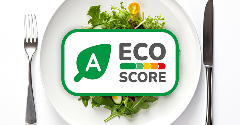News
USDA expands its definition of nitrates
15 Jan 2021The Food Safety and Inspection Service of the US Department of Agriculture (USDA) will expand the definition of nitrates in May 2021 to prohibit products using any source of nitrates from using the statements “No Nitrate or Nitrite Added” and “Uncured.” Sources of nitrates, both synthetic and natural, will be considered curing agents.
This new ruling is in response to a petition sent by the Center for Science in the Public Interest requesting the governmental agency to revise its position on nitrates as the current labeling system is misleading. In the petition, the agency asked for the USDA to require labeling non-synthetic sources of nitrates, such as celery powder, as curing agents; require nitrate ingredients to be listed on the nutrition panel; require a disclosure such as “Nitrates or nitrites added” on all products prepared with any sources of nitrates; and prohibit the statements, “No Nitrate or Nitrite Added” and “Uncured,” on products that have been processed using any source of nitrates.

While several of these requests were granted, the USDA is not obliging manufacturers to disclose of the use of nitrates when non-synthetic sources are used. Instead, the agency said that the amended definitions of “cured” and “uncured” will clarify the current confusion around the use of nitrate sources.
Such sweeping changes to the definition of nitrates will certainly affect the food industry as many manufacturers have sought to clean up their food labels and erase the term nitrates from them by using vegetal-based nitrate substitutes. However, now that these sources are considered nitrates, companies will once again have to redesign their labels or reformulate their products if they wish to keep nitrates from appearing on labels.
Despite the push to remove the term from visibility, nitrates are an important addition to many products, particularly processed meats, as they act as preservatives that prevent the growth of dangerous bacteria. Despite their efficacy, consumers have largely taken the stance that they prefer to not have nitrates in their food. There have been studies showing that nitrates lead to the body developing carcinogens; a fact that was noted in the petition by the Center for Science in the Public Interest.
Pressure from consumers has led to manufacturers working to devise alternative preservation solutions. While natural ingredients like sage, salt and vinegar are widely used, they remain less popular than nitrate solutions for preservation.
With nearly half of consumers searching for “no nitrates added” labels when purchasing products, according to a 2019 Consumer Reports survey, manufacturers will have to consider both the advantages and disadvantages of continuing to rely on nitrates to preserve products.
Related news

UK Government overhauls childhood obesity strategy
21 Nov 2025
The UK Government has announced a new package of measures designed to reverse the nation’s childhood obesity epidemic following the release of statistics revealing the scale of the crisis.
Read more
How younger consumers are redefining ingredient choices and rejecting brand loyalty
18 Nov 2025
Gen Z and millennial consumers’ preferences for transparency, functionality, and purpose are “redefining the very nature of consumption itself”, says SPINS.
Read more
New UPF standard hoped to offer consumers ‘coherence and clarity’
10 Nov 2025
Ingredients companies are being urged to enter “a new era of partnership and innovation” following the launch of the industry’s first non-UPF verification scheme.
Read more
Ingredient quantities mislabelled on popular protein bars, independent tests show
5 Nov 2025
Some popular protein bars contain more fat, carbs, and/or sugars than claimed on their labels, independent nutrition testing reveals.
Read more
Does promoting protein content push up plant-based sales?
27 Oct 2025
Promoting the protein content of meat-free products is a more effective sales strategy than adding carbon labels, a study of UK bakery chain Greggs suggests.
Read more
Supplement shoppers seek storytelling and science-backed suppliers
17 Oct 2025
Supplement consumers want specific health benefits that focus on prevention and personalisation, according to data from HealthFocus International.
Read more
Food fraud risks rise as brands fight economic and environmental headwinds
10 Oct 2025
Climate change, geopolitics, regulations, and demand for sustainable products are pushing up food fraud and adulteration risks, warns a world-leading food fraud expert.
Read more
The growing appeal of nutrient-dense food claims
2 Oct 2025
Nutrient-dense claims are rising as consumers reject the “empty calories” of UPFs in favour of products that provide meaningful nutrition with every calorie, Mintel data shows.
Read more
What does MAHA mean for the US nutraceutical industry?
30 Sep 2025
Industry associations have expressed mixed reactions to new policy directions on health and nutrition under the Make America Health Again (MAHA) banner.
Read more
Eco-Score labels improve consumer identification of sustainable foods
22 Sep 2025
The presence of a front-of-pack Eco-Score label improves consumers' accuracy in identifying sustainable food products from 52% to 72%, a study suggests.
Read more